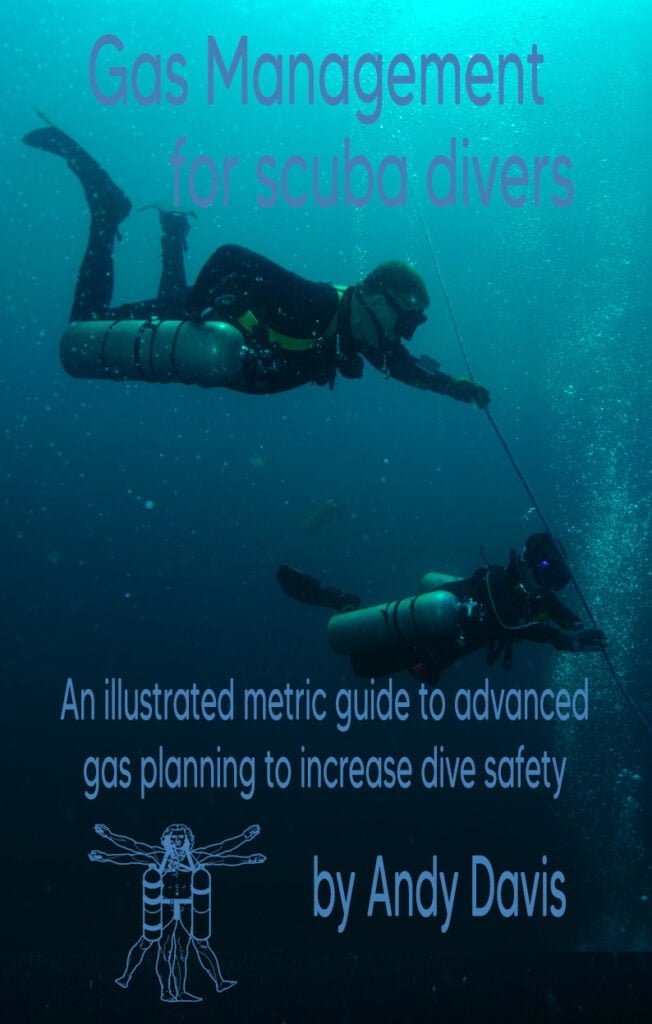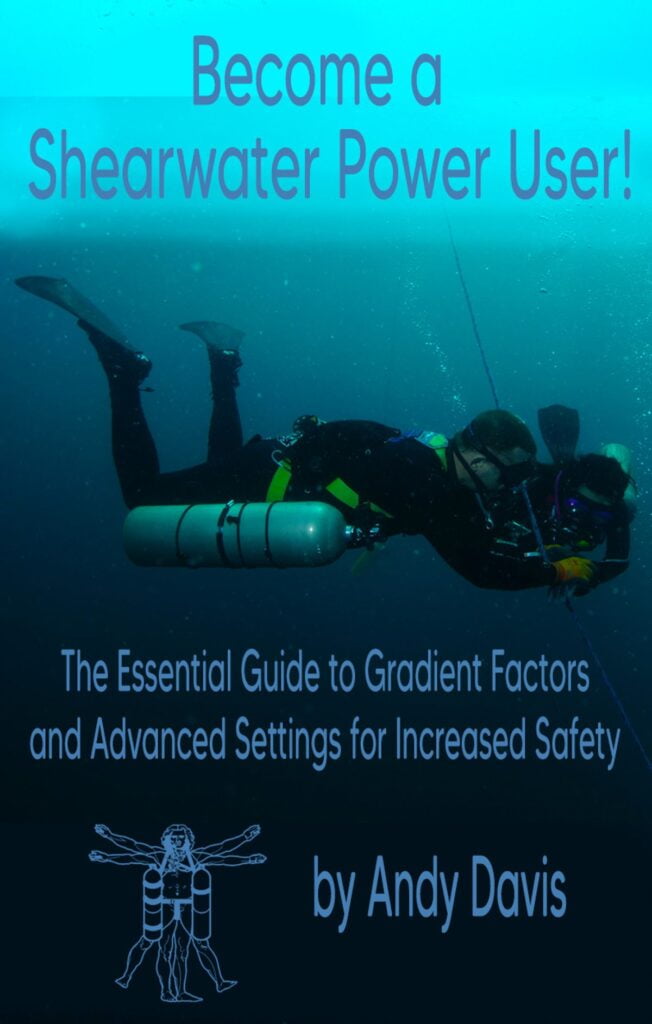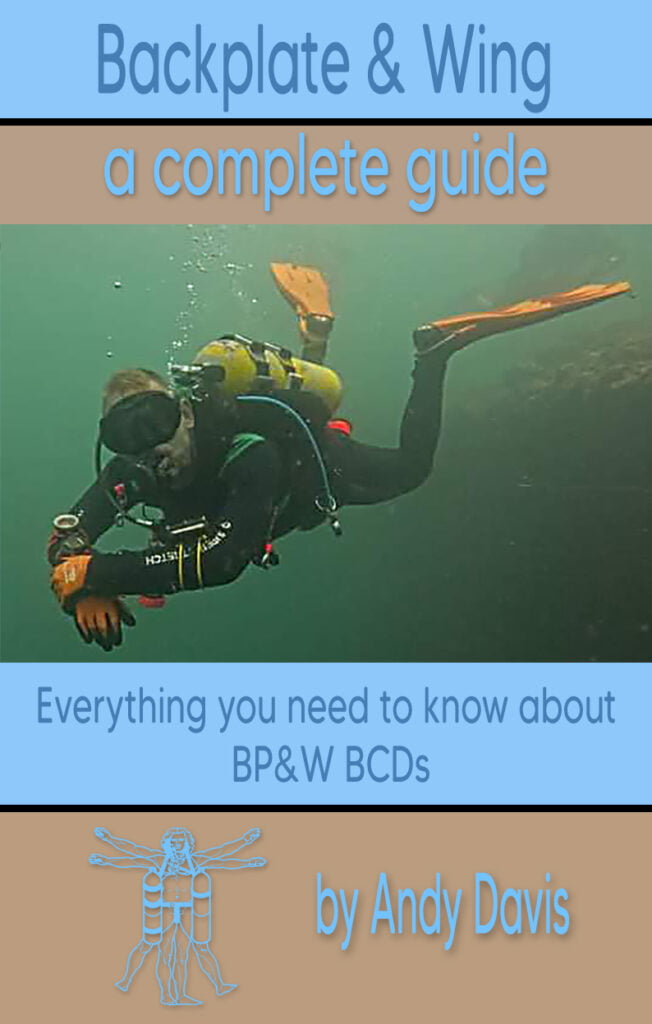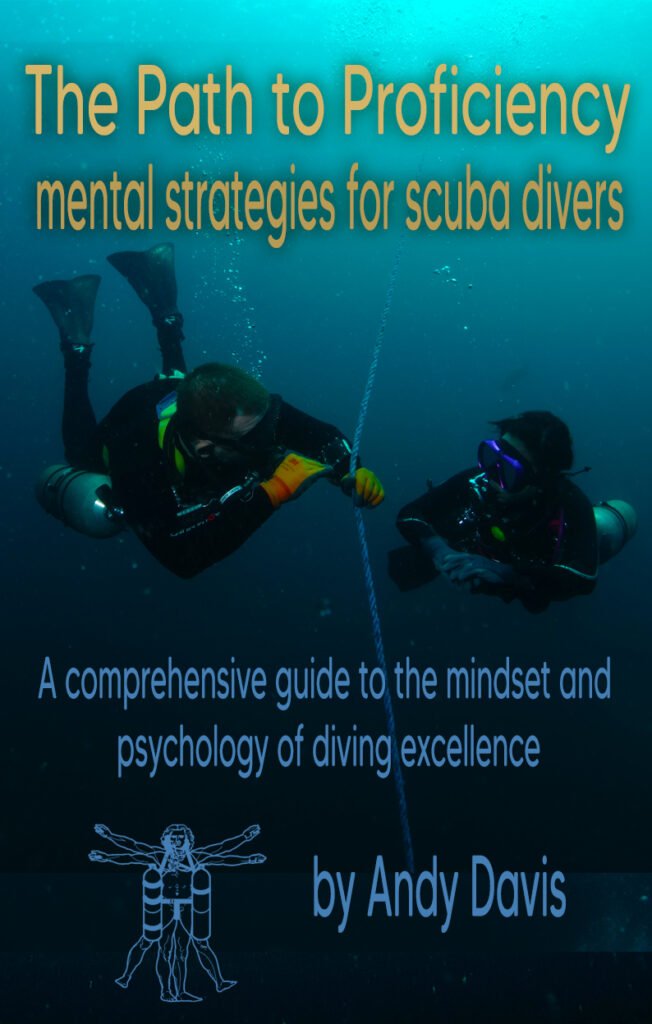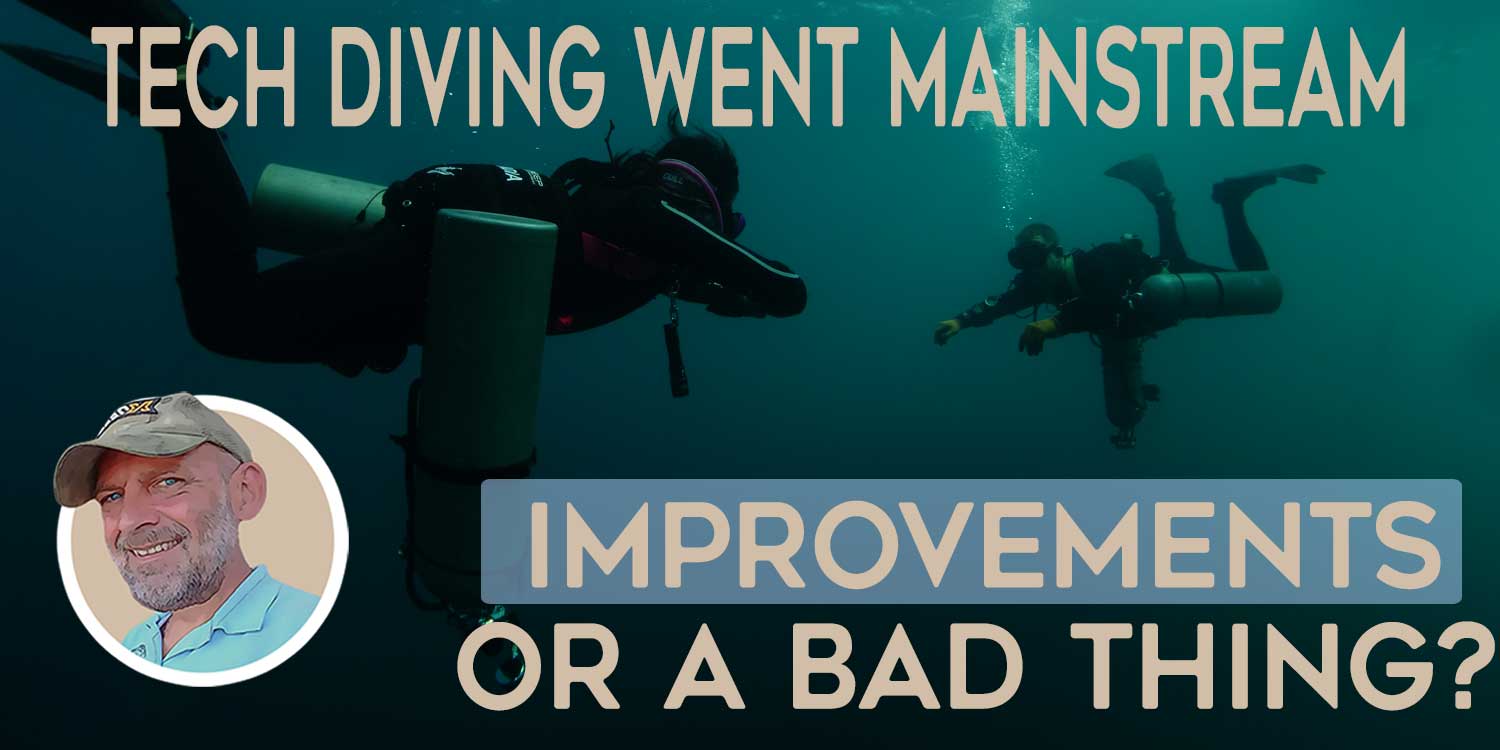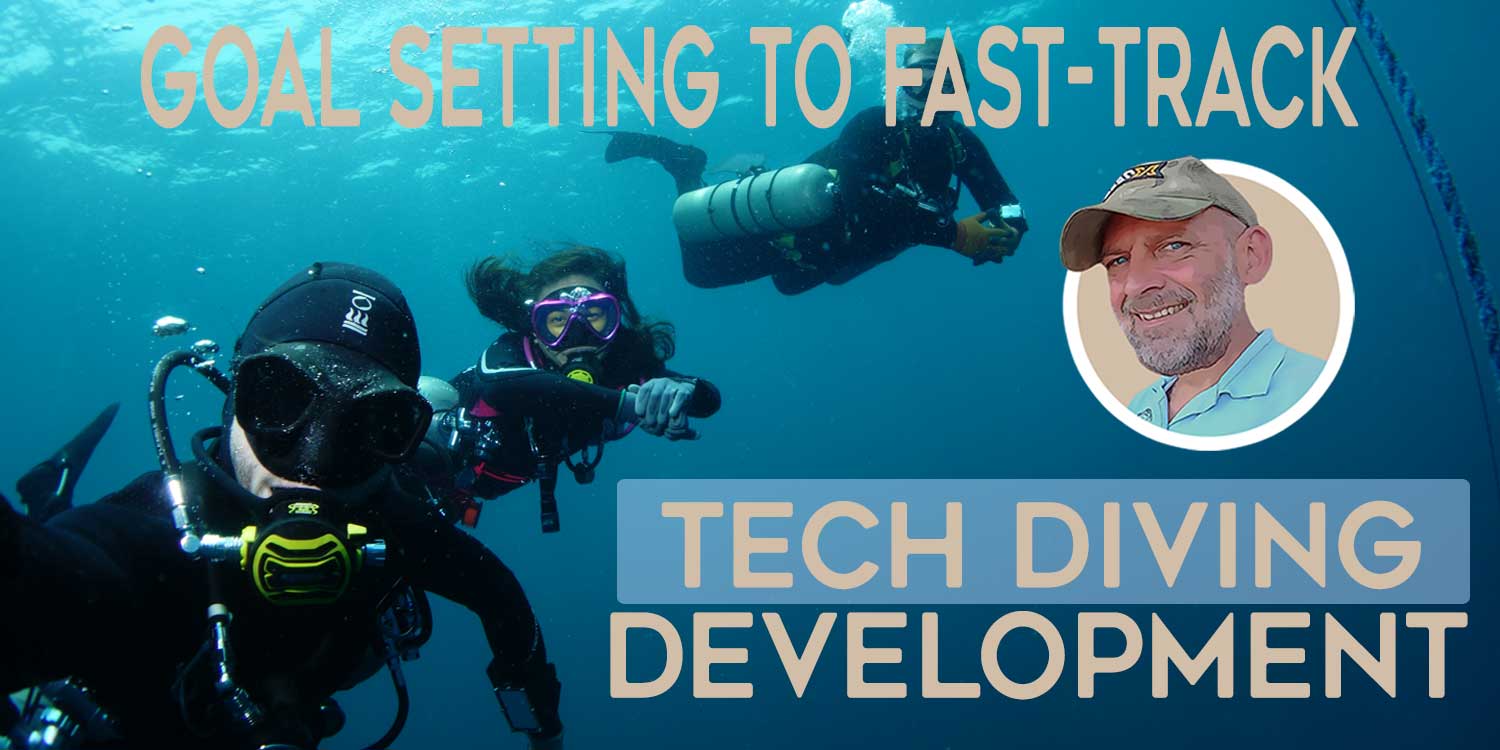What is the biggest risk in technical diving? (and how to avoid it)
The biggest risk in technical diving is, quite simply, not having the capacity to resolve the next hazardous incident that occurs to you. This applies as much to the novice technical diver as it does to the highest level of expertise.
There are old divers.
And there are bold divers.
But there are few old, bold divers.
A technical diver must be clear and cognizant of their own personal performance limitations. You cannot manage risk in technical diving effectively until you accurately understand your ability. Divers must grasp what issues they can survive and what situations they cannot reliably deal with. They must dive accordingly.
- This has nothing to do with whatever plastic certification card they hold.
- It has nothing to do with how much time they devote to internet discussions on technical diving.
- It bears no correlation to the ‘brand label’ of the tech kit they parade in.
- It remains unaffected by whichever technical diving philosophy they subscribe to.
- It matters not which agency they train with.

Cultivate self-honesty and self-awareness
That’s what matters most. Cultivate the ability to be brutally honest with yourself. It really protects you from risk in technical diving.
Overcome your ego to ask, and honestly answer, the questions;
“How good am I really?”
“Am I really ready for this dive?”
“Am I doing this correctly, as I was taught?”
Resist the temptation to deceive and flatter yourself. There are many such temptations.
Don’t succumb to grand delusions over your certification level or logged dives count. Neither of those accurately reflects your actual competency as an advanced diver.
Ignore illusory factors like over-congratulatory instructors and encouraging ‘continued education’ attractions from the technical diving agencies; which might otherwise tempt you to betray yourself. The best training is that which illustrates your limitations, not that which promotes a notion of competency within a few short days.

That said, challenging training can be equally guilty in promoting delusions of invincibility. Instructors who promote ‘hazing’ style training can actually bolster ego, rather than planting the seeds of humility.
There must be an element of failure in training, to keep our ego in check.
Technical diving training is our testing ground and it is where we survive our mistakes. It’s better to make our mistakes in supervised, safe training situations. Learn to embrace your fallibility.
Don’t deceive yourself about experience and logged dives
Don’t over-value your logged dive experience. 1000 uneventful dives teach zero lessons. Generic diving experience will help develop equipment and routine procedural familiarity… and that is undeniably beneficial. But familiarity also breeds contempt. Complacency is the insidious shadow of success.
Most of your dives will be textbook and uneventful. That should never be interpreted as any reassurance of your capacity to deal with the eventful and catastrophic. It most definitely must never be allowed to tempt you into cutting corners or allowing skill to fade.
If we are easily tempted to congratulate ourselves, every successful dive can teach us to become sloppier, less contentious divers. We can suffer a capacity decline to impending disaster.

Training scenarios are not real life
Dealing with a carefully staged scenario in training does not constitute the same lesson as dealing with it in real life. The risk in technical diving is different from being supervised on a training course. For a start, the inherent psychology, and stress are different.
In real life, there can often be variables – dangerous variables – that your instructor is unable (or prudently unwilling) to replicate. Don’t get complacent over your capacity in training. A good instructor makes their training as realistic and challenging as possible, but a simulated scenario is only ever a pale imitation of a real-life emergency.
If you’ve dealt with a specific issue or emergency situation in ‘real life’, then you have experience dealing with that specific instance.
If you’ve been pushed to (or beyond) your stress threshold, then you learn about your stress threshold. Nothing more, nothing less.

It’s not how much you know, it’s what you DON’T know that matters
Always remember that the issue you’ve not yet dealt with – the lesson you’ve not yet learned – might be the one that eventually kills you. The risk in technical diving is that those unknown and unforeseeable problems always exist.
We are only as capable as our weakest competency, our stupidest mistake, and our worst day.
Each real incident you survive is nonetheless invaluable in your development. Only once you start encountering real, life-threatening, problems that arise on technical dives will you begin to develop an ability to extrapolate where your current capacity actually ends.

Start easy and only up the challenge as you prove yourself
Play it very safely with the parameters of your diving until you develop that ability. Technical diving is very unforgiving when things go wrong. Keep your dives ‘survivable’ under the assumption that unproven capacity means no capacity.
If you do identify capacity deficits, eliminate them ruthlessly – or limit your diving accordingly.
Don’t ignore or conceal capability deficits, or delude yourself about their importance. That’s gambling, and sooner or later you might lose that gamble. Bravado and swagger don’t mitigate risk in technical diving.
Collect all the certification cards that you want – if that’s “your thing”. Some people enjoy challenges and feel empowered by those achievements. There’s no shame in that. Just don’t believe the hype. Don’t think for a second that all those sexy cards would save your life on a technical dive. Not unless those cards actually represent a real capacity that will get you safely to the surface when things go badly wrong.

Don’t succumb to self-flattery or clique mentality
Study all the online tech theories that you want. Read ‘Deco for Divers’ and bedazzle your peers with that acquired knowledge. Take slick photos of yourself in perfect trim, with the perfect gear. Practice drills in a pool weekly until they are perfect. Be very ‘DIR’… But still don’t let these things distract you from your actual ability to resolve the worst imaginable scenarios occurring on the next dive you undertake. An expert skillset is needed to overcome risk in technical diving.
In short, don’t let the insubstantial things go to your head. Not when there are substantial things like DCS, O2 toxicity and drowning waiting to actually kill on the day that you ever fail to deal with the trigger events that cause them.
If you want to become an old, bold technical diver, focus on cultivating the capacity to accurately appraise and understand your competencies and capacities relative to the dives you want to undertake.
Recommended reading when preparing for technical diving courses
About The Author

Andy Davis is a RAID, PADI TecRec, ANDI, BSAC, and SSI-qualified independent technical diving instructor who specializes in teaching sidemount, trimix, and advanced wreck diving courses.
Currently residing in Subic Bay, Philippines; he has amassed more than 10,000 open-circuit and CCR dives over three decades of challenging diving across the globe.
Andy has published numerous diving magazine articles and designed advanced certification courses for several dive training agencies, He regularly tests and reviews new dive gear for scuba equipment manufacturers. Andy is currently writing a series of advanced diving books and creating a range of tech diving clothing and accessories.
Prior to becoming a professional technical diving educator in 2006, Andy was a commissioned officer in the Royal Air Force and has served in Iraq, Afghanistan, Belize, and Cyprus.
In 2023, Andy was named in the “Who’s Who of Sidemount” list by GUE InDepth Magazine.
Purchase my exclusive diving ebooks!
Originally posted 2018-11-05 06:10:31.


